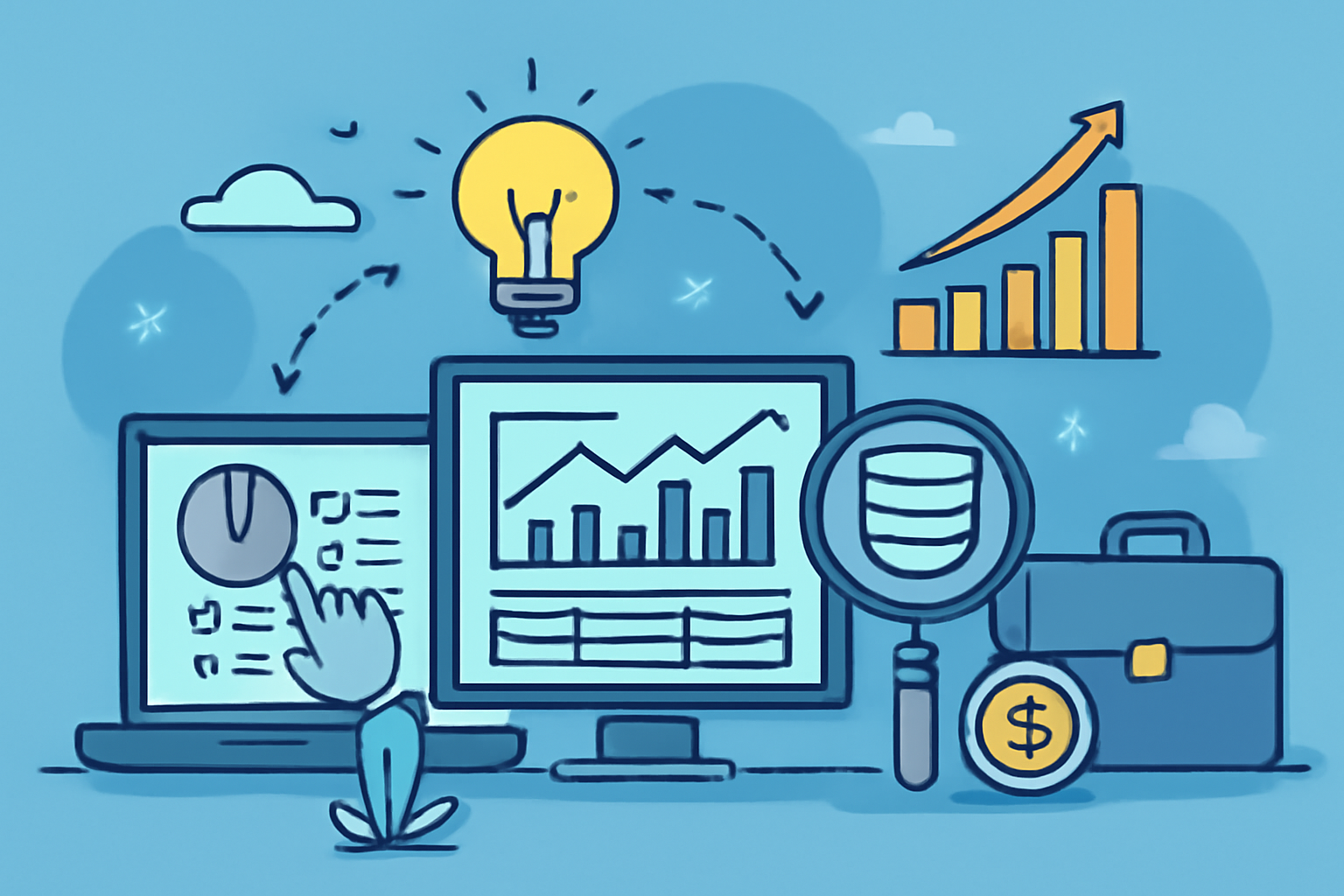Reports Are Not Enough: CDOs Must Now Embrace Intuitive, Self-Service Data Products

Ready-to-consume, standardized, and business-focused data assets are no longer just a nice-to-have, says Franck Carassus, Co-founder of Huwise
By Franck Carassus
Chief Data Officers have invested heavily in building their technology and data stacks. While this has enabled them to better manage their data, it hasn’t enabled them to turn it into real value.
In fact, according to research by Seagate and the International Data Corporation, 68% of data remains unused within organizations. As the need for accessible, reliable data to power AI grows more urgent, this issue is becoming critical in the boardroom.
Data products are crucial for delivering usable information
Traditionally, data and analytics was the domain of business analysts and data teams, producing reports on-demand for management. Not only is this time-consuming and inefficient, but it means that business users cannot directly interact with data themselves and incorporate it into their working lives. Additionally, it is difficult to leverage this data for AI use cases. This holds back deployments and means data adds limited value.
While solutions such as data catalogs are available to increase data availability, these simply provide a technical, often automated, inventory of all data. They focus on metadata and do not provide enough actionable insights about the business value of the data and its quality, condemning them to be solely adopted by technical users. They may help with data management, but they do not solve the pressing requirement to increase data consumption across the business.
Delivering true value therefore starts with providing business users and AI with relevant, understandable information that they can easily consume and benefit from, without needing to rely on data experts or technical tools.
Data products – such as performance dashboards, recommendation engines and predictive models – deliver this usable information. They are high-value, ready to consume, standardized and business-focused data assets that contain everything needed for users to understand and act on data, whatever their level of technical skills. They are governed by data contracts that provide service level agreements for data quality, how the product can be used, and who has access to it.
All of this means they are trusted by business users, driving consumption and value and underpinning AI projects.
Given their value, it is no surprise that Gartner research found that half of data leaders had already deployed data products, with a further 29% committed to piloting or considering their deployment in the next 12 months.
Visible and consumable: why marketplaces matter
Data products share one key characteristic with every other type of data asset. If users don’t know they exist, or trust that they will be relevant for their jobs, they simply won’t get used. The result: Wasted investment and a continuing lack of value from data.
To make sure data products are used by the business at scale, leaders need to ensure they are accessible, discoverable, and closely monitored. They can be shared manually through email on an individual basis, via internal wikis or corporate websites, or through existing data management solutions. These methods, though, fail to deliver an engaging experience to data consumers, especially those who are non-technical. They also fail to provide governance and control for data teams.
That’s why Gartner is seeing a growth in the deployment of data product marketplaces, which centralize, organize, and distribute data as usable products. They do this by providing secure, granular access through an intuitive e-commerce-style experience. This breaks down silos across the business, encourages data use, and builds a stronger data-centric culture, all while meeting governance requirements.
To drive adoption and maximize data impact, the data product marketplace operates just like an intuitive e-commerce platform. Users can browse a structured catalog, search for data products based on their needs, view enriched metadata, and access datasets through self-service.
Orchestrated by administrators and platform operators, the data product marketplace connects buyers and sellers, meeting both of their needs and enabling them to interact seamlessly. Consumers benefit from the ability to sort data products by popularity, ratings, and relevance, building trust and driving usage. Producers are able to promote specific, high-value data products and understand who is using their data, and for what.
Data product marketplaces go beyond static data catalogs and make data relevant to everyone, enabling collaboration between the business, data teams, and data owners. The data is easily discoverable by humans and AI, consumable, manageable and trackable through lineage, maximizing its value.
Faster decisions, greater collaboration
Industrializing the sharing and consumption of data products across the organization delivers real value and ROI by driving greater insight, innovation, and performance.
Deeper insight: Access to a more complete view of information through a usable, understandable and interactive data product enables better decision-making, by both employees and AI. This translates into more effective operations and strategic focus, based on comprehensive, up-to-date data rather than guesswork.
Enabling innovation: Centralizing data in a marketplace unleashes greater collaboration and creativity. Teams from across the organization can work together more closely to solve business issues and launch new service offerings that generate additional revenues.
Increased performance: Data product marketplaces increase efficiency across the business. Data teams no longer have to respond to incoming user requests for information and reports, as these can be accessed through self-service and visualizations on the solutions. Business users don’t have to wait for information and can simply find and consume the data they need quickly and easily. And CDOs are able to maximize their investments in data tools and programs by showing the concrete benefits that technology is bringing, justifying and safeguarding their budgets.
CDOs have long been focused on turning their data into a business asset, rather than a cost and compliance overhead that needs to be managed, stored and monitored. With data volumes rising, and the need for reliable data that can be shared with the business and AI, this focus is intensifying. Implementing a combination of data products and an intuitive, self-service data product marketplace delivers the answer: scaling data availability and consumption, driving value and democratizing data access for all.
Huwise will be attending and sponsoring CDAO Fall 2025 in Boston between October 22-23. Join them there to continue the conversation.



.png?width=352&name=codigo%20de%20descuento%20(6).png)